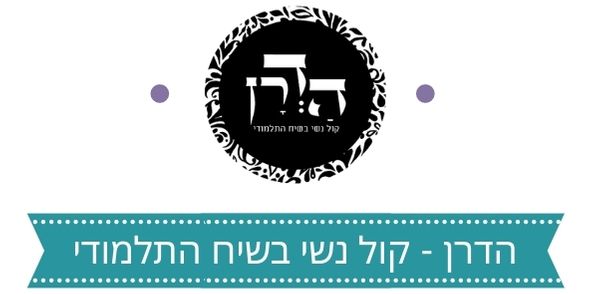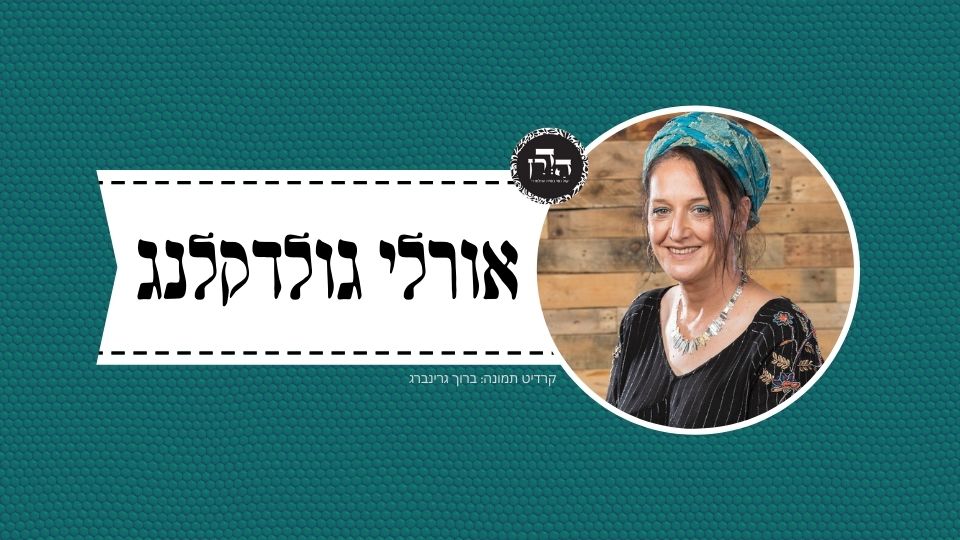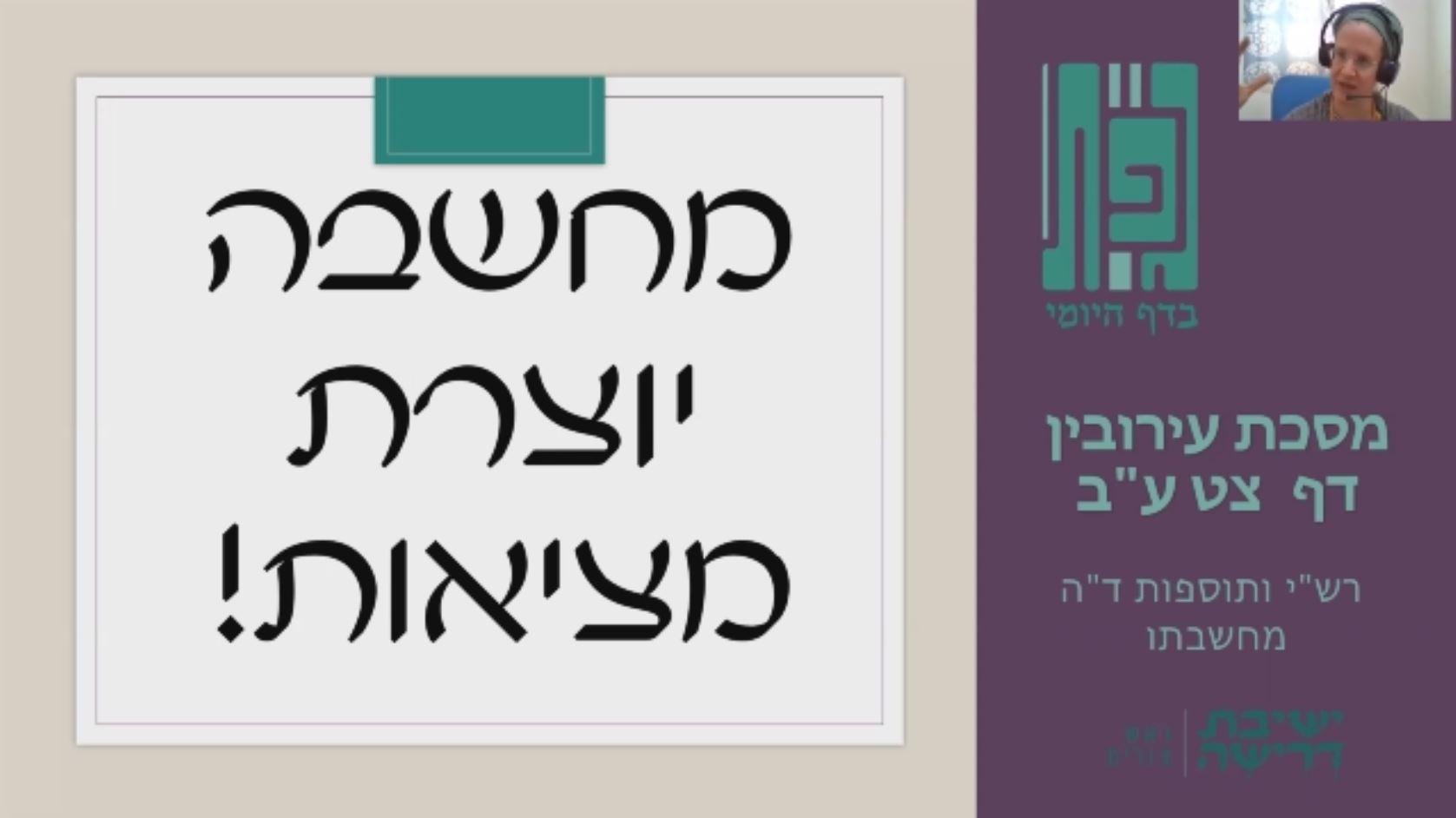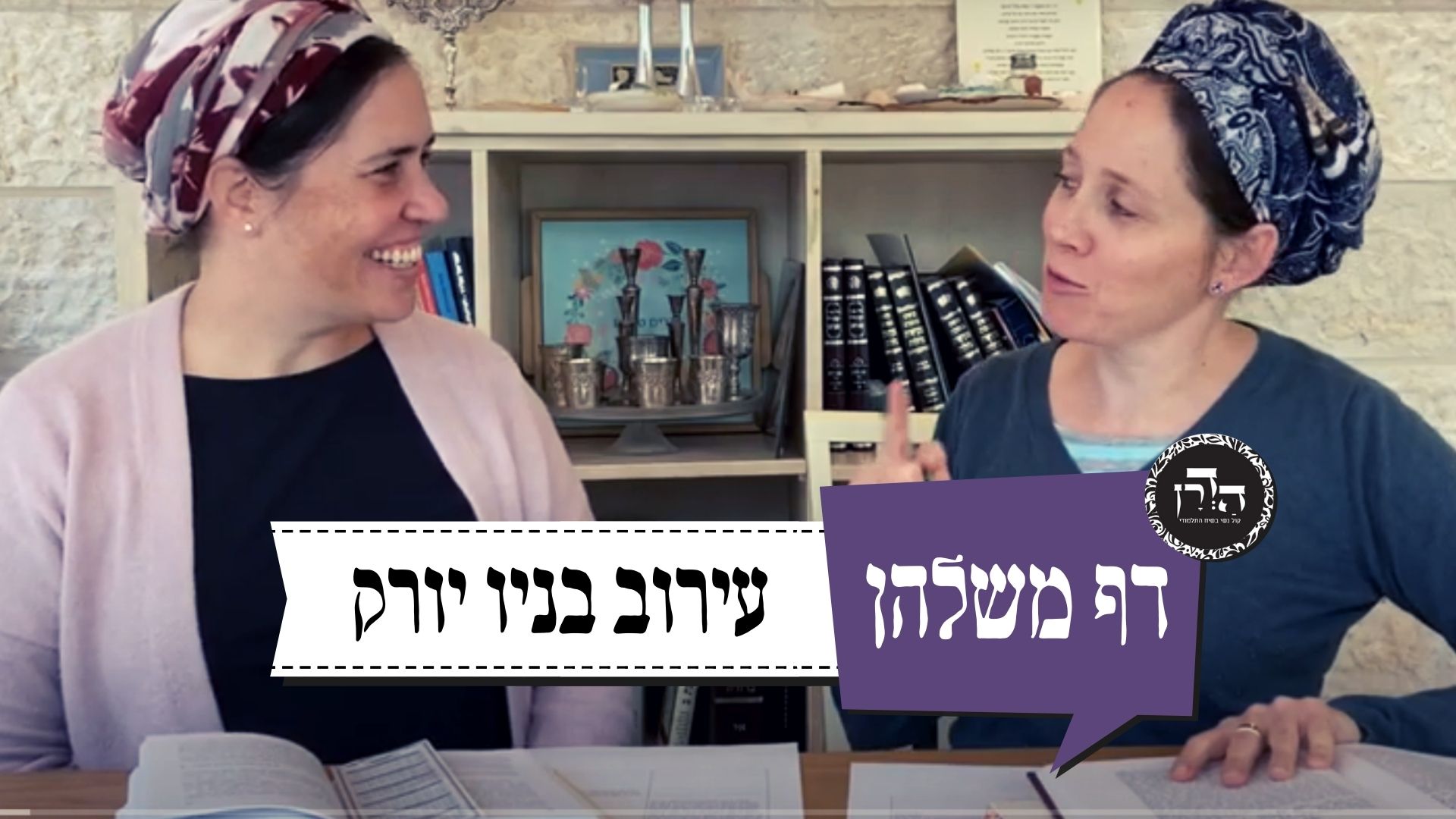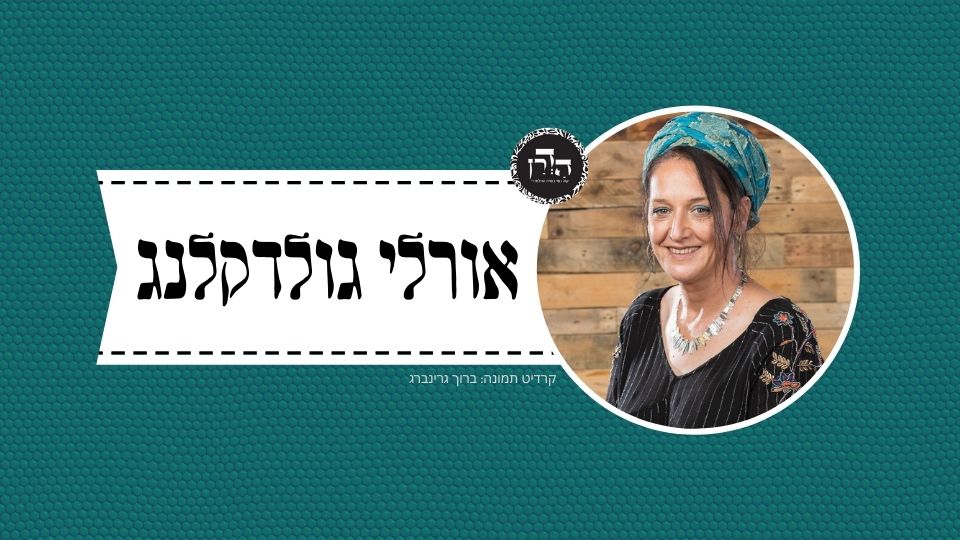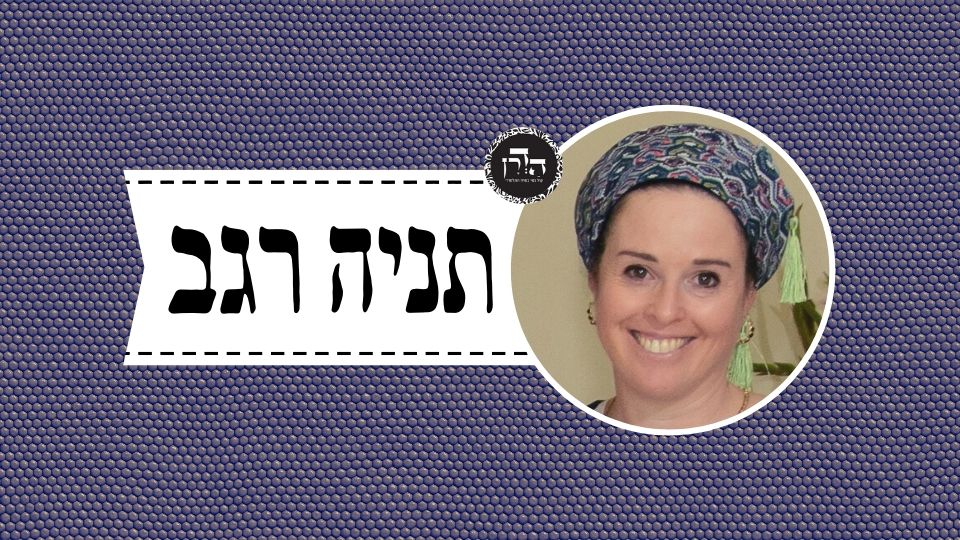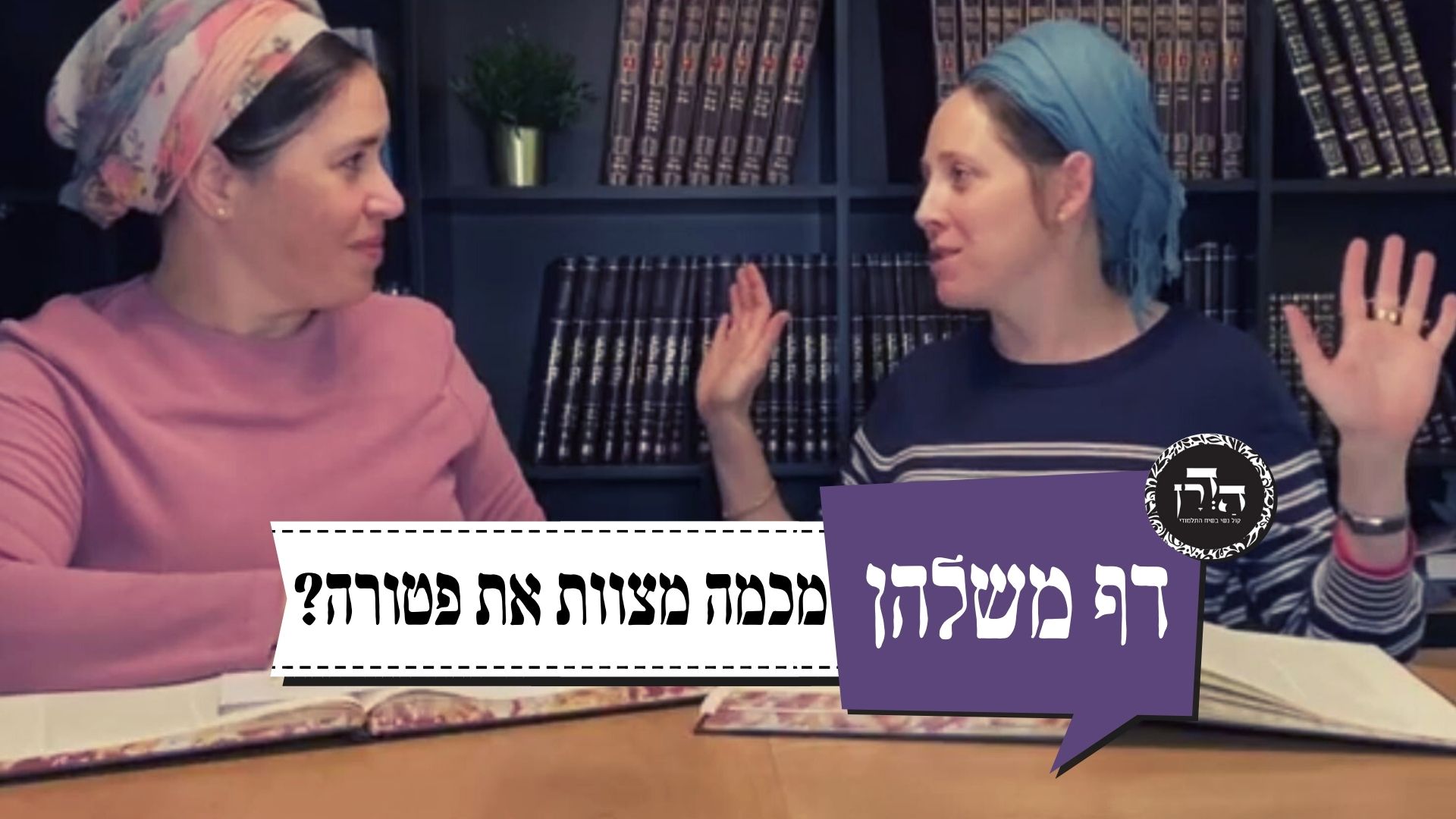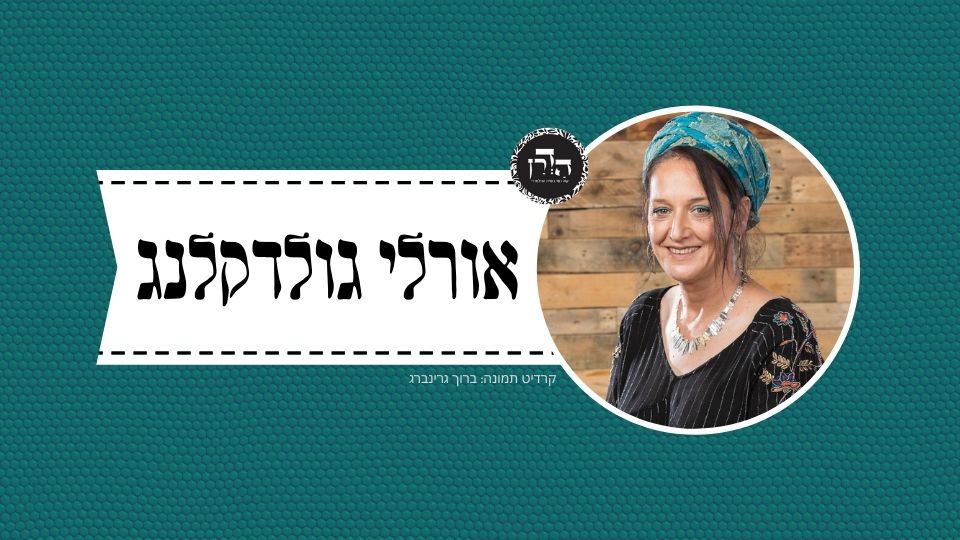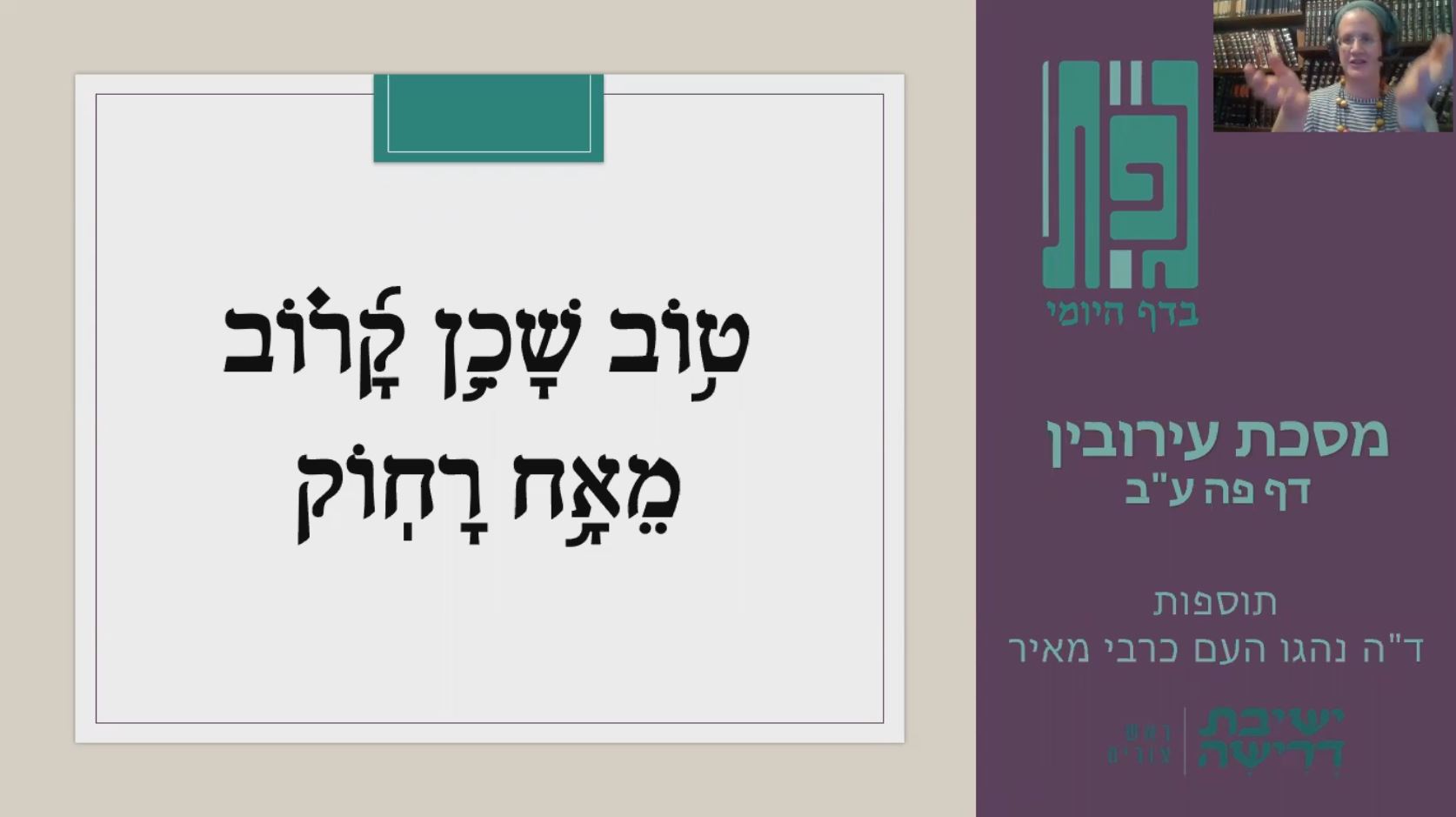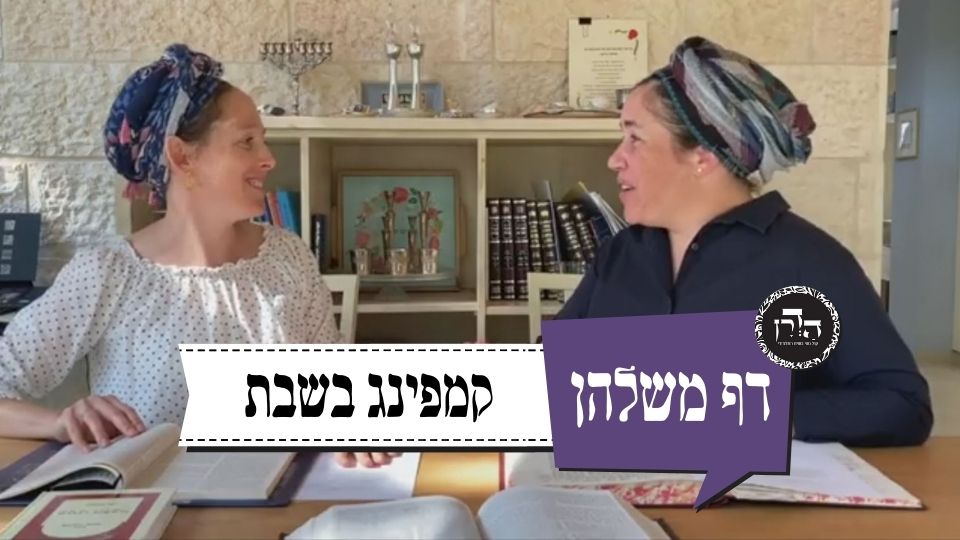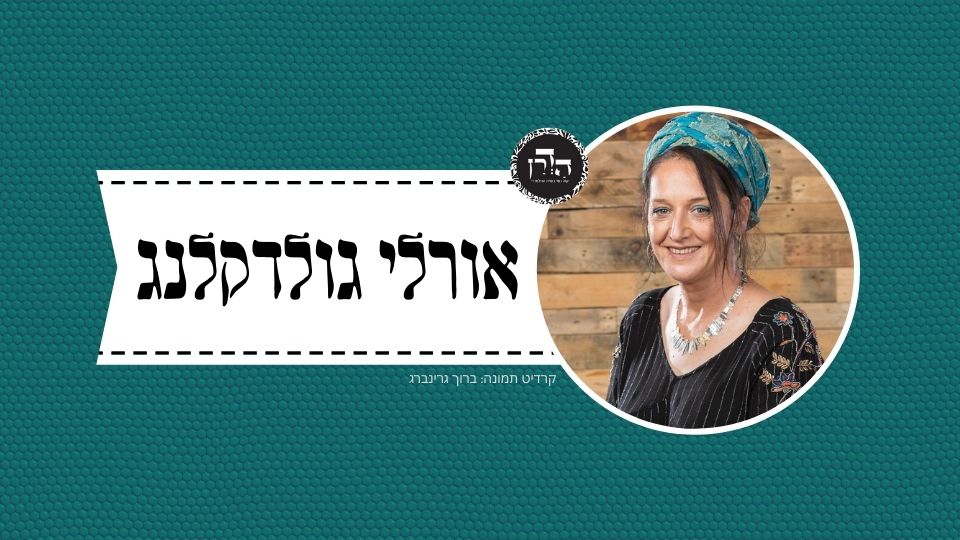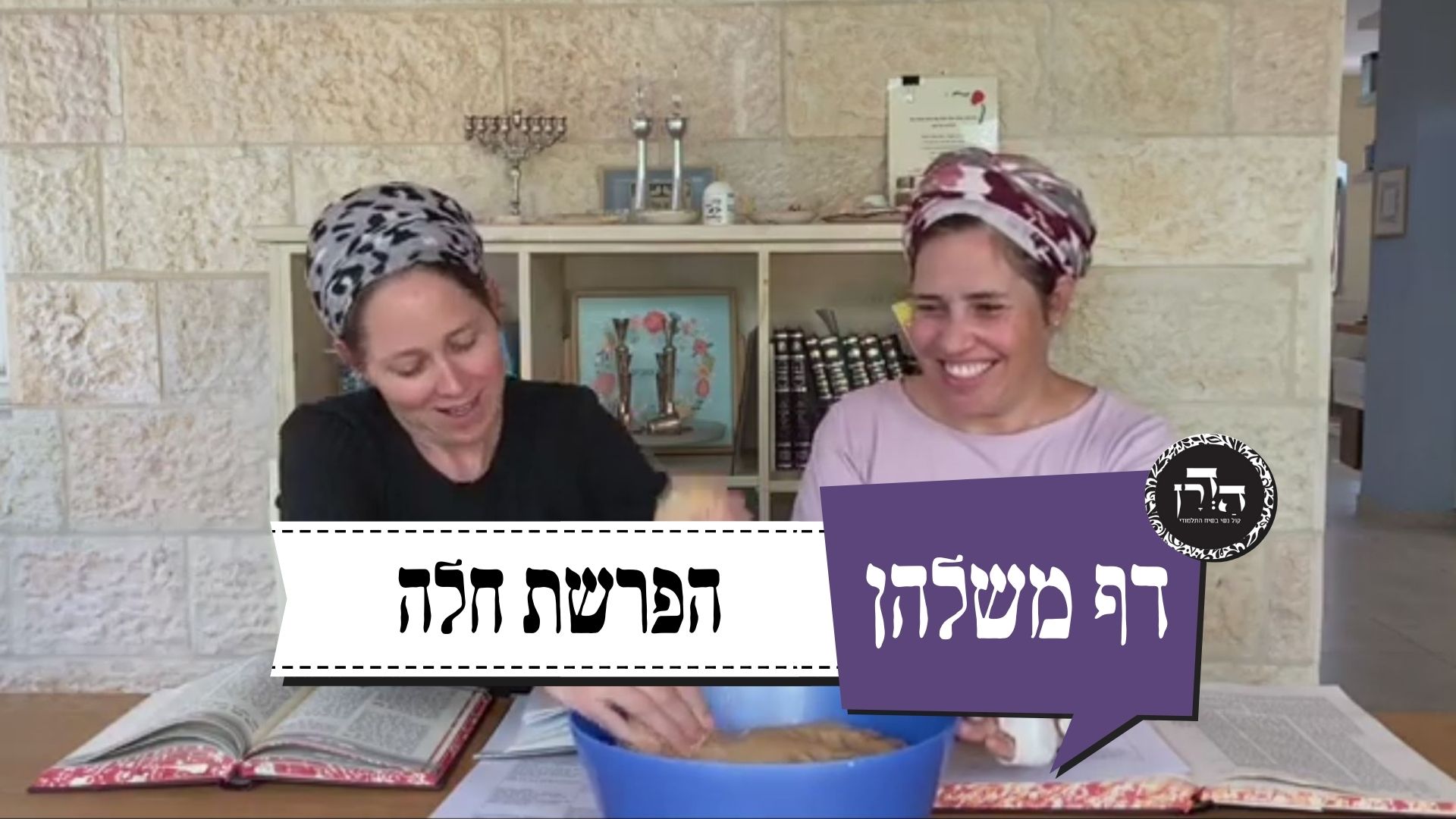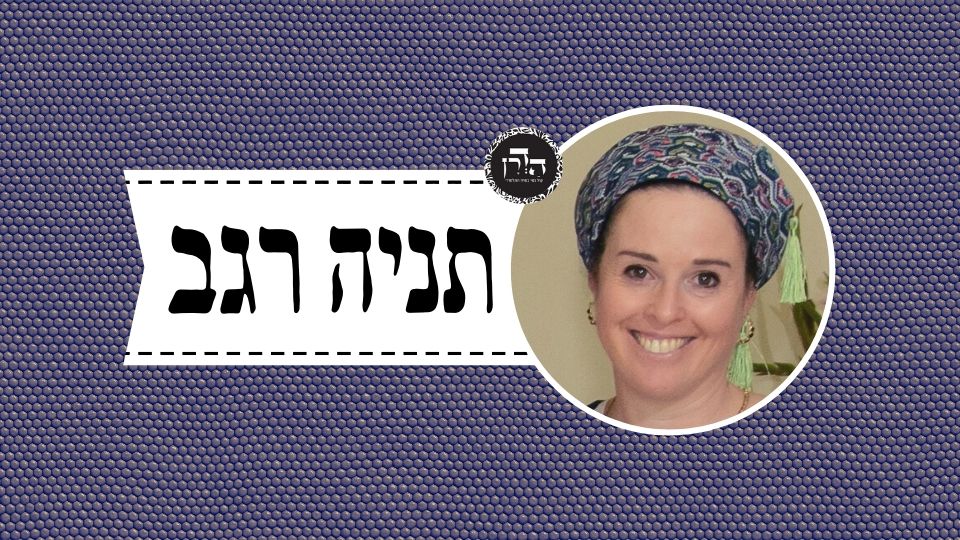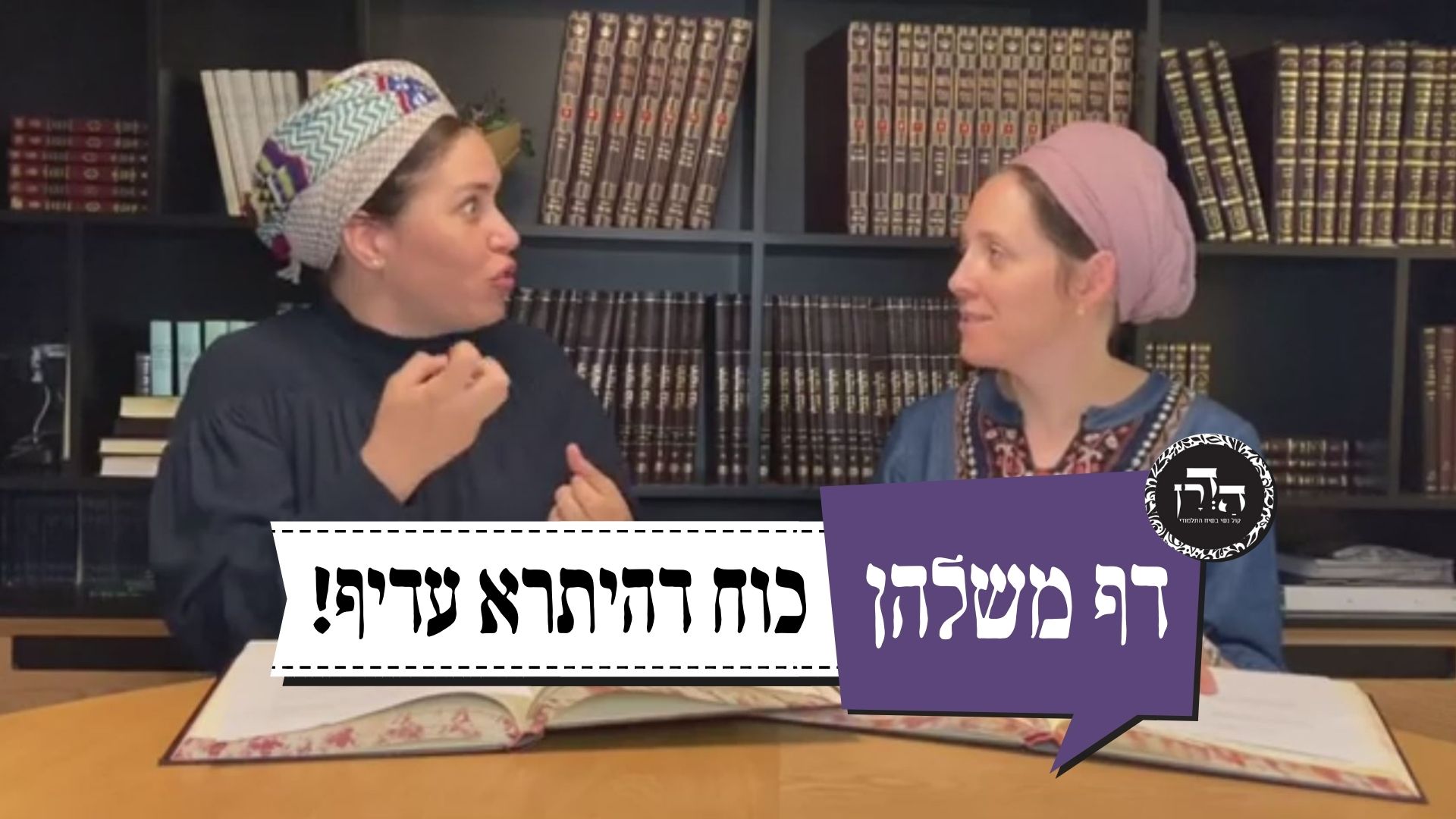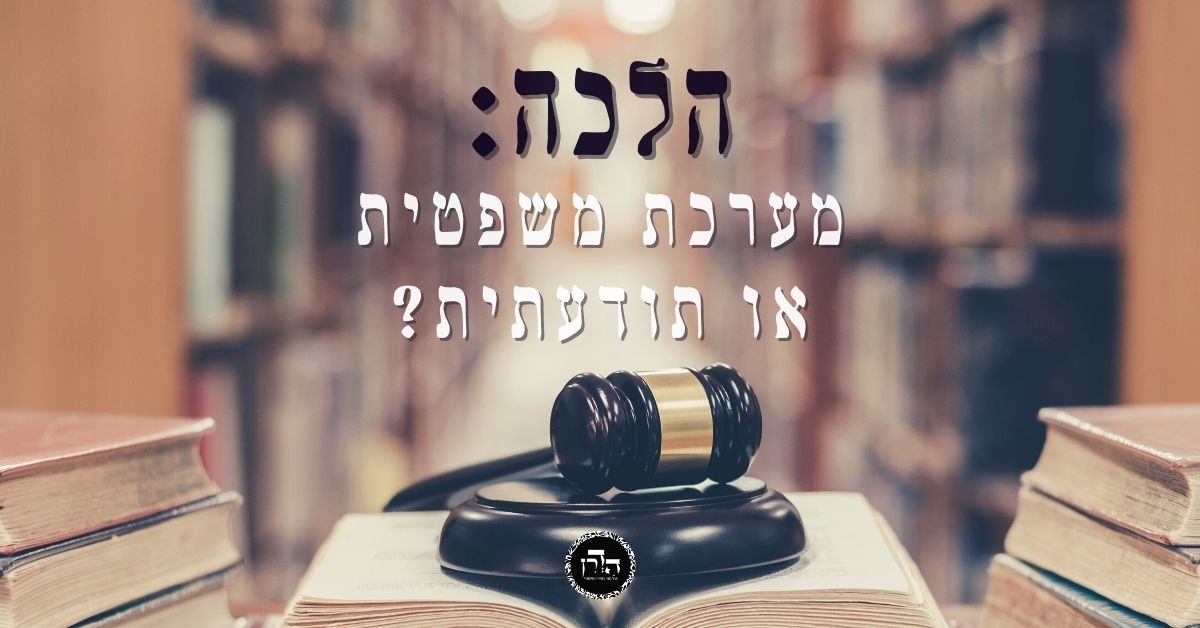עירובין ק
מִשּׁוּם דְּהָוֵי דִּירָה שֶׁתַּשְׁמִישָׁהּ לַאֲוִיר, וְכׇל דִּירָה שֶׁתַּשְׁמִישָׁהּ לַאֲוִיר — אֵין מְטַלְטְלִין בָּהּ יָתֵר מִבֵּית סָאתַיִם.
This was prohibited because it is a dwelling that serves only the air, i.e., it is used only by someone guarding the fields or the like. It is not used as permanent living quarters, despite its partitions. And the rule with respect to any dwelling that serves only the air is that it is not permitted to carry in it if its area is more than two beit se’a. As it is not a proper place of residence, the Sages treated it as an enclosure.
שׇׁרָשָׁיו גְּבוֹהִין מִן הָאָרֶץ וְכוּ׳. אִיתְּמַר: שׇׁרְשֵׁי אִילָן הַבָּאִין מִלְּמַעְלָה מִשְּׁלֹשָׁה לְתוֹךְ שְׁלֹשָׁה, רַבָּה אָמַר: מוּתָּר לְהִשְׁתַּמֵּשׁ בָּהֶן, רַב שֵׁשֶׁת אָמַר: אָסוּר לְהִשְׁתַּמֵּשׁ בָּהֶן.
The mishna states: If the roots of the tree are three handbreadths above the ground, one may not sit on them on Shabbat. It was stated that amora’im disagreed with regard to the roots of a tree that rise up and then bend and come down from above, from a height of three handbreadths to within three handbreadths of the ground. Rabba said: It is permitted to use them, and Rav Sheshet said: It is prohibited to use them.
רַבָּה אָמַר: מוּתָּר לְהִשְׁתַּמֵּשׁ בָּהֶן, דְּכׇל פָּחוֹת מִשְּׁלֹשָׁה דְּאַרְעָא — אַרְעָא הִיא. רַב שֵׁשֶׁת אָמַר: אָסוּר לְהִשְׁתַּמֵּשׁ בָּהֶן, דְּכֵיוָן דְּמִכֹּחַ אִיסּוּר קָאָתֵי — אֲסוּרִין.
The Gemara clarifies the rationale of each opinion. Rabba said that it is permitted to use them, as anything less than three handbreadths from the ground is considered as the ground. Rav Sheshet said: It is prohibited to use them; since they come from a prohibited source, they are prohibited. The section of the tree from which they grow is prohibited. Therefore, these roots should likewise be prohibited.
דְּדָמוּ כִּמְשׁוּנִּיתָא, דְּסָלְקִין לְעֵילָּא — אֲסוּרִין. דְּנָחֲתִין לְתַתַּאי — שְׁרוּ. לִצְדָדִין — פְּלוּגְתָּא דְּרַבָּה וְרַב שֵׁשֶׁת.
The Gemara proceeds to qualify the dispute: With regard to ascending and descending roots that resemble a rocky crag, those that rise upward are certainly prohibited according to all opinions; those that fall downward are permitted according to everyone. It is the roots that branch out to the sides that are the subject of the dispute between Rabba and Rav Sheshet. Rav Sheshet prohibits using them, while Rabba is lenient.
וְכֵן אַנִּיגְרָא, וְכֵן בְּקֶרֶן זָוִית.
And likewise, Rabba and Rav Sheshet disagree about a tree that grows in a ditch that has elevated roots, some of which are concealed by the banks of the ditch. The amora’im dispute whether the roots concealed by the banks are considered part of the ground. And likewise, in the case of a tree that grows in a corner between two walls, they disagree as to whether the section between the walls is considered part of the ground.
הָהוּא דִּיקְלָא דַּהֲוָה לְאַבָּיֵי, וַהֲוָה סָלֵיק בְּאִיפּוּמָא. אֲתָא לְקַמֵּיהּ דְּרַב יוֹסֵף וּשְׁרָא לֵיהּ.
The Gemara relates that Abaye had a certain palm tree that grew in his house and that projected through an opening in the roof. He came before Rav Yosef to ask him about it, and he permitted him to use the first three handbreadths of the palm tree above the roof, as the tree’s lower part is treated as though it were in the ground.
אָמַר רַב אַחָא בַּר תַּחְלִיפָא: דִּשְׁרָא לָךְ, כְּרַבָּה שְׁרָא לָךְ.
Rav Aḥa bar Taḥlifa said to Abaye: He who permitted it to you, permitted it to you in accordance with the opinion of Rabba, who maintains that a section of a tree concealed from view in at least two directions is considered as though it were underground. Consequently, the first three handbreadths above that section may be used on Shabbat, as they have the status of the ground.
פְּשִׁיטָא? מַהוּ דְּתֵימָא אֲפִילּוּ לְרַב שֵׁשֶׁת בֵּיתָא כְּמַאן דִּמְלֵי דָּמֵי, וְלִישְׁתַּמֵּשׁ בְּפָחוֹת מִשְּׁלֹשָׁה סָמוּךְ לַגַּג, קָא מַשְׁמַע לַן.
The Gemara expresses surprise: This is obvious. What novel element is Rav Aḥa bar Taḥlifa teaching us? The Gemara answers: It is necessary, lest you say that in this case it should be permitted even according to Rav Sheshet, as the house is considered full, i.e., it is as though it were filled with earth, and this would mean it is permitted to use the section less than three handbreadths from the roof. Rav Aḥa bar Taḥlifa therefore teaches us that Rav Sheshet is stringent even in this case.
תְּנַן: שׇׁרָשָׁיו גְּבוֹהִין מִן הָאָרֶץ שְׁלֹשָׁה טְפָחִים — לֹא יֵשֵׁב עֲלֵיהֶם. הֵיכִי דָמֵי? אִי דְּלָא הָדְרִי כָּיְפִי — פְּשִׁיטָא. אֶלָּא לָאו, אַף עַל גַּב דְּהָדְרִי כָּיְפִי!
The Gemara attempts to adduce proof from the mishna, in which we learned: If the roots of the tree are three handbreadths above the ground, one may not sit on them. What are the circumstances of this case? If the situation is that the roots do not bend over again, this is obvious, as anything higher than three handbreadths is part of the tree. Rather, doesn’t it mean that one may not sit on them even though they bend back downward to within three handbreadths of the ground? The mishna apparently indicates that if parts of the roots are more than three handbreadths above the ground, it is prohibited to use them along the rest of their entire length, as maintained by Rav Sheshet, contrary to Rabba.
לָא, לְעוֹלָם דְּלָא הָדָרִי כָּיְפִי, וְהָא קָא מַשְׁמַע לַן אַף עַל גַּב דְּצִידּוֹ אֶחָד שָׁוֶה לָאָרֶץ.
The Gemara rejects this contention: No, actually the mishna is referring to a case where they do not bend back downward, and the tanna comes to teach us the following: Although on one side of the tree the roots are level with the ground, nevertheless, it is prohibited to sit on them, as the roots on the other sides are more than three handbreadths above the ground.
תָּנוּ רַבָּנַן שׇׁרְשֵׁי אִילָן שֶׁגְּבוֹהִין מִן הָאָרֶץ שְׁלֹשָׁה טְפָחִים אוֹ שֶׁיֵּשׁ חָלָל תַּחְתֵּיהֶן שְׁלֹשָׁה טְפָחִים, אַף עַל פִּי שֶׁצִּידּוֹ אֶחָד שָׁוֶה לָאָרֶץ — הֲרֵי זֶה לֹא יֵשֵׁב עֲלֵיהֶן, לְפִי שֶׁאֵין עוֹלִין בְּאִילָן, וְאֵין נִתְלִין בְּאִילָן, וְאֵין נִשְׁעָנִין בְּאִילָן.
The Sages taught in a baraita: With regard to roots of a tree that are three handbreadths above the ground, or if there is a hollow space beneath them of three handbreadths, although on one side of the tree the roots are level with the ground, one may not sit on them because of the following rule: One may not climb a tree, nor may one hang from a tree by one’s hands, nor may one even lean against a tree on Shabbat.
וְלֹא יַעֲלֶה בְּאִילָן מִבְּעוֹד יוֹם וְיֵשֵׁב שָׁם כׇּל הַיּוֹם כּוּלּוֹ. אֶחָד אִילָן וְאֶחָד כׇּל הַבְּהֵמָה, אֲבָל בּוֹר שִׁיחַ וּמְעָרָה וְגָדֵר — מְטַפֵּס וְעוֹלֶה מְטַפֵּס וְיוֹרֵד, וַאֲפִילּוּ הֵן מֵאָה אַמָּה.
And similarly, one may not climb a tree on Friday while it is still day and sit there the entire day of Shabbat. This constitutes the use of the tree itself, not merely climbing it, and it is therefore prohibited. This halakha applies both to a tree and to all animals; one may not climb upon them, hang from them, or lean against them. However, the prohibition is not due to the effort involved in climbing, as is evident from the case of a cistern, ditch, cave, or a fence. One may climb up and climb down them, even if they are a hundred cubits deep.
תָּנֵי חֲדָא: אִם עָלָה — מוּתָּר לֵירֵד, וְתָנֵי חֲדָא — אָסוּר לֵירֵד. לָא קַשְׁיָא: כָּאן — מִבְּעוֹד יוֹם, כָּאן — מִשֶּׁחָשֵׁיכָה.
The Gemara comments: It was taught in one baraita: If one climbed up a tree, he is permitted to climb down; and it was taught in one other baraita that he is prohibited to climb down. The Gemara resolves this apparent contradiction: This is not difficult. Here, where it is permitted to descend, one climbed up on Friday, while it was still day; there, where it is prohibited to descend, one climbed up on Shabbat after nightfall.
וְאִיבָּעֵית אֵימָא, הָא וְהָא מִשֶּׁחָשֵׁיכָה, וְלָא קַשְׁיָא: כָּאן — בְּשׁוֹגֵג, כָּאן — בְּמֵזִיד.
And if you wish, say instead that both baraitot are referring to a case where one climbed up the tree after nightfall. But even so, it is not difficult: Here, it is permitted to descend, as one climbed up the tree unwittingly; there, it is prohibited to descend, as the baraita is dealing with one who climbed intentionally.
וְאִיבָּעֵית אֵימָא, הָא וְהָא בְּשׁוֹגֵג, וְהָכָא בְּקָנְסוּ שׁוֹגֵג אַטּוּ מֵזִיד קָמִיפַּלְגִי. מָר סָבַר: קָנְסִינַן. וּמָר סָבַר: לָא קָנְסִינַן.
And if you wish, say instead that both baraitot are referring to a case where one climbed up unwittingly, and they disagree about whether or not the Sages penalized an unwitting offender due to an intentional offender. One Sage, who ruled that it is prohibited to descend, maintains that they penalized an unwitting sinner to prevent others from climbing up on purpose and descending. Therefore, one may not come down even if he ascended by mistake. And one Sage, who ruled that it is permitted, maintains that they did not penalize the unwitting sinner in this manner.
אָמַר רַב הוּנָא בְּרֵיהּ דְּרַב יְהוֹשֻׁעַ: כְּתַנָּאֵי. הַנִּיתָּנִין בְּמַתָּנָה אַחַת שֶׁנִּתְעָרְבוּ בְּנִיתָּנִין מַתָּנָה אַחַת — יִנָּתְנוּ בְּמַתָּנָה אַחַת, מַתַּן אַרְבַּע בְּמַתַּן אַרְבַּע — יִנָּתְנוּ בְּמַתַּן אַרְבַּע.
Rav Huna, son of Rav Yehoshua, said: This dispute between the two baraitot is parallel to the dispute of the tanna’im, who disagreed with regard to a different matter. The blood of certain sacrifices, e.g., the firstborn and tithe offerings, is sprinkled once on the altar, while the blood of other sacrifices, e.g., burnt-offerings, is sprinkled four times. They require two sprinklings that are four, i.e., two sprinklings on opposite corners, so that the blood falls on all four sides. If the blood of sacrifices that require only one sprinkling becomes intermingled with the blood of other sacrifices that require only one sprinkling, the mixture will be sprinkled once. Likewise, if the blood of sacrifices that require four sprinklings becomes intermingled with the blood of other sacrifices that require four sprinklings, the mixture will be sprinkled four times.
מַתַּן אַרְבַּע בְּמַתַּן אַחַת, רַבִּי אֱלִיעֶזֶר אוֹמֵר: יִנָּתְנוּ בְּמַתַּן אַרְבַּע. וְרַבִּי יְהוֹשֻׁעַ אוֹמֵר: יִנָּתְנוּ בְּמַתָּנָה אַחַת.
If, however, the blood of a sacrifice that requires four sprinklings becomes intermingled with the blood of a sacrifice that requires only one sprinkling, the tanna’im disagree: Rabbi Eliezer says: The mixture of blood is sprinkled four times. And Rabbi Yehoshua says: It is sprinkled once, and this suffices for the atonement of the sacrifice.
אָמַר לוֹ רַבִּי אֱלִיעֶזֶר: הֲרֵי הוּא עוֹבֵר עַל ״בַּל תִּגְרַע״! אָמַר לוֹ רַבִּי יְהוֹשֻׁעַ: הֲרֵי הוּא עוֹבֵר בְּ״בַל תּוֹסִיף״.
Rabbi Eliezer said to Rabbi Yehoshua: If one sprinkles the blood only once, he transgresses the prohibition “you shall not diminish,” which prohibits the omission of any elements of the performance of a mitzva, as he has not sprinkled the blood of the burnt-offering in the proper manner. Rabbi Yehoshua said to Rabbi Eliezer: According to your ruling, that one must sprinkle the blood four times, he transgresses the prohibition: Do not add (Deuteronomy 13:1), which prohibits the addition of elements to a mitzva, as he sprinkles the blood of the firstborn animal more times than necessary.
אָמַר רַבִּי אֱלִיעֶזֶר: לֹא אָמְרוּ אֶלָּא כְּשֶׁהוּא בְּעַצְמוֹ. אָמַר לוֹ רַבִּי יְהוֹשֻׁעַ: לֹא נֶאֱמַר ״בַּל תִּגְרַע״ אֶלָּא כְּשֶׁהוּא בְּעַצְמוֹ.
Rabbi Eliezer said to Rabbi Yehoshua: They said the prohibition against adding to the mitzvot only where the blood stands by itself, not when it is part of a mixture. Rabbi Yehoshua said to Rabbi Eliezer: Likewise, the prohibition: Do not diminish, was stated only in a case where the blood stands by itself.
וְעוֹד אָמַר רַבִּי יְהוֹשֻׁעַ: כְּשֶׁנָּתַתָּ — עָבַרְתָּ עַל ״בַּל תּוֹסִיף״ וְעָשִׂיתָ מַעֲשֶׂה בְּיָדֶךָ. כְּשֶׁלֹּא נָתַתָּ — עָבַרְתָּ עַל ״בַּל תִּגְרַע״ וְלֹא עָשִׂיתָ מַעֲשֶׂה בְּיָדֶךָ.
And Rabbi Yehoshua further said in defense of his position: When you sprinkle four times, you have transgressed the prohibition: Do not add, with regard to one of the sacrifices, and you also performed an action with your own hand, i.e., you transgress the Torah’s command by means of a positive act. By contrast, when you do not sprinkle four times, even if you have transgressed the prohibition: Do not diminish, you did not perform the action with your own hand. If one is forced to deviate from the commands of the Torah, it is better to do so in a passive manner.
לְרַבִּי אֱלִיעֶזֶר דְּאָמַר הָתָם ״קוּם עֲשֵׂה״ עָדִיף, הָכִי נָמֵי יֵרֵד. לְרַבִּי יְהוֹשֻׁעַ דְּאָמַר הָתָם ״שֵׁב וְאַל תַּעֲשֶׂה״ עָדִיף, הָכִי נָמֵי לֹא יֵרֵד.
Rav Huna, son of Rav Yehoshua, sought to argue the following: According to Rabbi Eliezer, who said there, with regard to sacrifices, that if both alternatives involve the violation of a prohibition it is preferable to stand and take action, i.e., perform a positive action, here too, one should climb down from the tree, as it is better to perform a single positive transgression by climbing down rather than commit a passive transgression throughout the entire Shabbat by remaining on the tree. By contrast, according to Rabbi Yehoshua, who said with regard to sacrifices that it is preferable to sit and not take action, here too, one should not descend from the tree.
דִּילְמָא לָא הִיא, עַד כָּאן לָא קָאָמַר רַבִּי אֱלִיעֶזֶר הָתָם ״קוּם עֲשֵׂה״ עָדִיף — אֶלָּא דְּקָא עָבֵיד מִצְוָה. אֲבָל הָכָא דְּלָא עָבֵיד מִצְוָה, הָכִי נָמֵי לֹא יֵרֵד.
The Gemara refutes this comparison: Perhaps that is not the case, as the two halakhot are not identical. Rabbi Eliezer might have stated his opinion that it is preferable to stand and take action only in the case dealt with there, where one performs a mitzva with respect to the additional sprinklings of the burnt-offering. However, here, where one performs no mitzva whatsoever by descending, indeed, he should not descend.
וְאִי נָמֵי, עַד כָּאן לָא קָאָמַר רַבִּי יְהוֹשֻׁעַ הָתָם ״שֵׁב וְאַל תַּעֲשֶׂה״ עָדִיף — אֶלָּא
Alternatively, the comparison can be rejected in a different fashion: Rabbi Yehoshua may have stated his opinion that it is preferable to sit and not take action only in the case dealt with there,
דְּלָא קָא עָבֵיד אִיסּוּרָא, אֲבָל הָכָא דְּקָא עָבֵיד אִיסּוּרָא, הָכִי נָמֵי דְּיֵרֵד.
where one does not commit a transgression by refraining from action. However, here, where one commits a transgression every additional moment he remains in the tree, indeed, he should descend from it.
תָּנֵי חֲדָא: אֶחָד אִילָן לַח וְאֶחָד אִילָן יָבֵשׁ, וְתַנְיָא אִידַּךְ: בַּמֶּה דְּבָרִים אֲמוּרִים — בְּלַח, אֲבָל בְּיָבֵשׁ — מוּתָּר.
The Gemara cites an apparent contradiction: It was taught in one baraita that both a green tree and a dry tree are included in the prohibition against climbing a tree, whereas it was taught in another baraita: In what case are these matters, that one may not climb a tree, stated? With regard to a green tree. But in the case of a dry one, it is permitted to climb it.
אָמַר רַב יְהוּדָה, לָא קַשְׁיָא: כָּאן — בְּשֶׁגִּזְעוֹ מַחְלִיף, כָּאן — בְּשֶׁאֵין גִּזְעוֹ מַחְלִיף.
Rav Yehuda said: It is not difficult. Here, the baraita that includes a dry tree in the prohibition is referring to a tree whose stump sends out new shoots when cut; whereas there, the baraita that excludes a dry tree from the prohibition is referring to one whose stump does not send out new shoots.
גִּזְעוֹ מַחְלִיף יָבֵשׁ קָרֵית לֵיהּ! אֶלָּא לָא קַשְׁיָא: כָּאן — בִּימוֹת הַחַמָּה, כָּאן — בִּימוֹת הַגְּשָׁמִים.
The Gemara expresses surprise at this answer: You call a tree whose stump sends out new shoots dry? This tree is not dry at all. Rather, it is not difficult, as both baraitot deal with a dry tree whose stump will not send out any new shoots. However, here, the baraita that permits climbing a dry tree, is referring to the summer, when it is evident that the tree is dead; whereas there, the baraita that prohibits climbing the tree is referring to the rainy season, when many trees shed their leaves and it is not obvious which remain alive and which are dead.
בִּימוֹת הַחַמָּה, הָא נָתְרִי פֵּירֵי! בִּדְלִיכָּא פֵּירֵי. וְהָא קָא נָתְרִי קִינְסֵי! בְּגִדּוּדָא.
The Gemara raises a difficulty: In the summer, the fruit of the previous year left on the dry tree will fall off when he climbs it, and climbing the tree should therefore be prohibited lest he come to pick the fruit. The Gemara answers: We are dealing here with a case where there is no fruit on the tree. The Gemara asks: But small branches will fall off when he climbs the tree, and once again this should be prohibited in case he comes to break them off. The Gemara answers: We are dealing here with a tree that has already been stripped of all its small branches.
אִינִי?! וְהָא רַב אִיקְּלַע לְאַפְסַטְיָא, וַאֲסַר בְּגִדּוּדָא! רַב בִּקְעָה מָצָא, וְגָדַר בָּהּ גָּדֵר.
The Gemara asks: Is that really so? But Rav arrived at a place called Apsetaya and prohibited its residents from climbing even a tree that had already been stripped of all its branches. The Gemara answers: In truth, no prohibition was involved, but Rav found an unguarded field, i.e., a place where transgression was widespread, and fenced it in. He added a stringency as a safeguard and prohibited an action that was fundamentally permitted.
אָמַר רָמֵי בַּר אַבָּא אָמַר רַב אַסִּי: אָסוּר לְאָדָם שֶׁיְּהַלֵּךְ עַל גַּבֵּי עֲשָׂבִים בְּשַׁבָּת, מִשּׁוּם שֶׁנֶּאֱמַר: ״וְאָץ בְּרַגְלַיִם חוֹטֵא״.
Rami bar Abba said that Rav Asi said: It is prohibited for a person to walk on grass on Shabbat, due to the fact that it is stated: “And he who hastens with his feet sins” (Proverbs 19:2). This verse teaches that mere walking occasionally involves a sin, e.g., on Shabbat, when one might uproot the grass on which he walks.
תָּנֵי חֲדָא: מוּתָּר לֵילֵךְ עַל גַּבֵּי עֲשָׂבִים בְּשַׁבָּת, וְתַנְיָא אִידַּךְ: אָסוּר. לָא קַשְׁיָא: הָא — בְּלַחִים, הָא — בִּיבֵשִׁים.
The Gemara cites another apparent contradiction: It was taught in one baraita that it is permitted to walk on grass on Shabbat, and it was taught in another baraita that it is prohibited to do so. The Gemara answers: This is not difficult. This baraita is referring to green grass, which one might uproot, thereby transgressing the prohibition against reaping on Shabbat. That other baraita is referring to dry grass, which has already been cut off from its source of life, and therefore the prohibition of reaping is no longer in effect.
וְאִי בָּעֵית אֵימָא, הָא וְהָא בְּלַחִים, וְלָא קַשְׁיָא: כָּאן — בִּימוֹת הַחַמָּה, כָּאן — בִּימוֹת הַגְּשָׁמִים.
And if you wish, say instead that both baraitot are referring to green grass, and yet there is no difficulty: Here, the baraita that prohibits walking on grass is referring to the summer, when the grass includes seeds that might be dislodged by one’s feet, whereas there, the baraita that permits doing so is referring to the rainy season, when this problem does not exist.
וְאִיבָּעֵית אֵימָא, הָא וְהָא בִּימוֹת הַחַמָּה, וְלָא קַשְׁיָא: הָא — דְּסָיֵים מְסָאנֵיהּ, הָא — דְּלָא סָיֵים מְסָאנֵיהּ.
And if you wish, say instead that both baraitot are referring to the summer, and it is not difficult: This baraita, which permits walking on grass, is referring to a case where one is wearing his shoes, whereas that other baraita, which prohibits it, deals with a situation where one is not wearing his shoes, as the grass might get entangled between his toes and be uprooted.
וְאִיבָּעֵית אֵימָא: הָא וְהָא דְּסָיֵים מְסָאנֵיהּ, וְלָא קַשְׁיָא: הָא — דְּאִית לֵיהּ עוּקְצֵי, הָא — דְּלֵית לֵיהּ עוּקְצֵי.
And if you wish, say instead that both baraitot are referring to a case where one is wearing his shoes, and nevertheless this is not difficult: This baraita prohibits walking on grass, as it involves a case where one’s shoe has a spike on which the grass might get caught and be uprooted, whereas that other baraita permits it, because it deals a case where one’s shoe does not have a spike.
וְאִיבָּעֵית אֵימָא, הָא וְהָא דְּאִית לֵיהּ עוּקְצֵי: הָא — דְּאִית לֵיהּ שְׁרָכָא, הָא — דְּלֵית לֵיהּ שְׁרָכָא.
And if you wish, say instead that both are referring to a case where the shoe has a spike, and it is not difficult: This baraita, which prohibits walking on grass, is referring to a case where the grass is long and entangled, and it can easily get caught on the shoe, whereas that other baraita is referring to a case where the grass is not long and entangled.
וְהָאִידָּנָא דְּקַיְימָא לַן כְּרַבִּי שִׁמְעוֹן, כּוּלְּהוּ שְׁרֵי.
The Gemara concludes: And now, when we maintain that the halakha is in accordance with the opinion of Rabbi Shimon, who maintains that there is no liability for a prohibited act committed unwittingly during the performance of a permitted act, all of these scenarios are permitted, as here too, one’s intention is merely to walk and not to uproot grass on Shabbat.
וְאָמַר רָמֵי בַּר חָמָא אָמַר רַב אַסִּי: אָסוּר לְאָדָם שֶׁיָּכוֹף אִשְׁתּוֹ לִדְבַר מִצְוָה, שֶׁנֶּאֱמַר: ״וְאָץ בְּרַגְלַיִם חוֹטֵא״.
The Gemara cites another halakha derived from the verse mentioned in the previous discussion. Rami bar Ḥama said that Rav Asi said: It is prohibited for a man to force his wife in the conjugal mitzva, i.e., sexual relations, as it is stated: “And he who hastens with his feet sins” (Proverbs 19:2). The term his feet is understood here as a euphemism for intercourse.
וְאָמַר רַבִּי יְהוֹשֻׁעַ בֶּן לֵוִי: כׇּל הַכּוֹפֶה אִשְׁתּוֹ לִדְבַר מִצְוָה הָוְיָין לוֹ בָּנִים שֶׁאֵינָן מְהוּגָּנִין. אָמַר רַב אִיקָא בַּר חִינָּנָא, מַאי קְרָאָה: ״גַּם בְּלֹא דַעַת נֶפֶשׁ לֹא טוֹב״.
And Rabbi Yehoshua ben Levi said: Anyone who forces his wife to perform the conjugal mitzva will have unworthy children as a consequence. Rav Ika bar Ḥinnana said: What is the verse that alludes to this? “Also, that the soul without knowledge is not good” (Proverbs 19:2). If intercourse takes place without the woman’s knowledge, i.e., consent, the soul of the offspring will not be good.
תַּנְיָא נָמֵי הָכִי: ״גַּם בְּלֹא דַעַת נֶפֶשׁ לֹא טוֹב״ — זֶה הַכּוֹפֶה אִשְׁתּוֹ לִדְבַר מִצְוָה. ״וְאָץ בְּרַגְלַיִם חוֹטֵא״ — זֶה הַבּוֹעֵל וְשׁוֹנֶה.
That was also taught in a baraita: “Also, without knowledge the soul is not good”; this is one who forces his wife to perform the conjugal mitzva. “And he who hastens with his feet sins”; this is one who has intercourse with his wife and repeats the act in a manner that causes her pain or distress.
אִינִי?! וְהָאָמַר רָבָא: הָרוֹצֶה לַעֲשׂוֹת כׇּל בָּנָיו זְכָרִים יִבְעוֹל וְיִשְׁנֶה! לָא קַשְׁיָא: כָּאן — לְדַעַת, כָּאן — שֶׁלֹּא לְדַעַת.
The Gemara is surprised by this teaching: Is that so? But didn’t Rava say: One who wants all his children to be males should have intercourse with his wife and repeat the act? The Gemara answers: This is not difficult: Here, where Rava issued this advice, he was referring to a husband who acts with his wife’s consent. There, the baraita that condemns this behavior is referring to one who proceeds without her consent.
אָמַר רַבִּי שְׁמוּאֵל בַּר נַחְמָנִי אָמַר רַבִּי יוֹחָנָן: כׇּל אִשָּׁה שֶׁתּוֹבַעַת בַּעְלָהּ לִדְבַר מִצְוָה הוֹוִין לָהּ בָּנִים שֶׁאֲפִילּוּ בְּדוֹרוֹ שֶׁל מֹשֶׁה לֹא הָיוּ כְּמוֹתָן. דְּאִילּוּ בְּדוֹרוֹ שֶׁל מֹשֶׁה כְּתִיב: ״הָבוּ לָכֶם אֲנָשִׁים חֲכָמִים וּנְבוֹנִים וִידוּעִים לְשִׁבְטֵיכֶם״, וּכְתִיב: ״וָאֶקַּח אֶת רָאשֵׁי שִׁבְטֵיכֶם אֲנָשִׁים חֲכָמִים וִידוּעִים״, וְאִילּוּ נְבוֹנִים לָא אַשְׁכַּח.
Apropos relations between husband and wife, the Gemara cites that Rav Shmuel bar Naḥmani said that Rabbi Yoḥanan said: Any woman who demands of her husband that he fulfill his conjugal mitzva will have sons the likes of whom did not exist even in Moses’ generation. With regard to Moses’ generation, it is written: “Get you, wise men, and understanding, and well-known from each one of your tribes, and I will make them head over you” (Deuteronomy 1:13), and it is later written: “So I took the heads of your tribes, wise men, and well-known, and made them heads over you” (Deuteronomy 1:15). However, men possessing understanding, which is a more lofty quality than wisdom, Moses could not find any of these.
וְאִילּוּ גַּבֵּי לֵאָה כְּתִיב: ״וַתֵּצֵא לֵאָה לִקְרָאתוֹ וַתֹּאמֶר אֵלַי תָּבוֹא כִּי שָׂכוֹר שְׂכַרְתִּיךָ״, וּכְתִיב: ״וּמִבְּנֵי יִשָּׂשכָר יוֹדְעֵי בִינָה לַעִתִּים לָדַעַת מַה יַּעֲשֶׂה יִשְׂרָאֵל רָאשֵׁיהֶם מָאתַיִם וְכׇל אֲחֵיהֶם עַל פִּיהֶם״.
While with regard to Leah, it is written: “And Leah went out to meet him, and said, You must come in to me, for indeed I have hired you with my son’s mandrakes” (Genesis 30:16). Her reward for demanding that Jacob fulfill the conjugal mitzva with her was the birth of Issachar, and it is written: “And of the children of Issachar, men who had understanding of the times, to know what Israel ought to do; the heads of them were two hundred, and all their brethren were at their commandment” (I Chronicles 12:33).
אִינִי?! וְהָאָמַר רַב יִצְחָק בַּר אַבְדִּימִי: עֶשֶׂר קְלָלוֹת נִתְקַלְּלָה חַוָּה, דִּכְתִיב:
The Gemara poses a question: Is that so? Is it proper for a woman to demand her conjugal rights from her husband? But didn’t Rav Yitzḥak bar Avdimi say: Eve was cursed with ten curses, due to the sin of the Tree of Knowledge, as it is written: “To the woman He said, I will greatly multiply your pain and your travail; in sorrow you shall bring forth children; and yet your desire shall be to your husband, and he shall rule over you” (Genesis 3:16)?
״אֶל הָאִשָּׁה אָמַר הַרְבָּה אַרְבֶּה״, אֵלּוּ שְׁנֵי טִפֵּי דָמִים — אַחַת דַּם נִדָּה, וְאַחַת דַּם בְּתוּלִים. ״עִצְּבוֹנֵךְ״, זֶה צַעַר גִּידּוּל בָּנִים. ״וְהֵרוֹנֵךְ״, זֶה צַעַר הָעִיבּוּר. ״בְּעֶצֶב תֵּלְדִי בָּנִים״, כְּמַשְׁמָעוֹ.
Rav Yitzḥak bar Avdimi proceeds to explain this verse. “To the woman He said: I will greatly multiply [harba arbe]”; these are the two drops of blood unique to a woman, which cause her suffering, one the blood of menstruation and the other one the blood of virginity. “Your pain”; this is the pain of raising children. “And your travail”; this is the pain of pregnancy. “In sorrow you shall bring forth children”; in accordance with its plain meaning, i.e., the pain of childbirth.
״וְאֶל אִישֵׁךְ תְּשׁוּקָתֵךְ״, מְלַמֵּד שֶׁהָאִשָּׁה מִשְׁתּוֹקֶקֶת עַל בַּעְלָהּ בְּשָׁעָה שֶׁיּוֹצֵא לַדֶּרֶךְ. ״וְהוּא יִמְשׇׁל בָּךְ״, מְלַמֵּד שֶׁהָאִשָּׁה תּוֹבַעַת בַּלֵּב וְהָאִישׁ תּוֹבֵעַ בַּפֶּה. זוֹ הִיא מִדָּה טוֹבָה בַּנָּשִׁים.
“And yet your desire shall be to your husband” teaches that the woman desires her husband, e.g., when he sets out on the road; “and he shall rule over you” teaches that the woman demands her husband in her heart but is too shy to voice her desire, but the man demands his wife verbally. Rav Yitzḥak bar Avdimi adds: This is a good trait in women, that they refrain from formulating their desire verbally. Apparently, it is improper for a woman to demand her conjugal rights from her husband.
כִּי קָאָמְרִינַן, דְּמַרְצְיָא אַרְצוֹיֵי קַמֵּיהּ.
The Gemara answers: When we say that a woman who demands her conjugal rights from her husband is praiseworthy, it does not mean she should voice her desires explicitly. Rather, it means that she should make herself pleasing to him, and he will understand what she wants on his own.
הָנֵי שֶׁבַע הָוְויָן! כִּי אֲתָא רַב דִּימִי אָמַר: עֲטוּפָה כְּאָבֵל, וּמְנוּדָּה מִכׇּל אָדָם, וַחֲבוּשָׁה בְּבֵית הָאֲסוּרִין.
The Gemara analyzes the above statement with regard to Eve’s ten curses: Are they in fact ten? They are only seven. When Rav Dimi came from Eretz Yisrael to Babylonia, he said that the other curses are: A woman is wrapped like a mourner, i.e., she must cover her head; and she is ostracized from all people and incarcerated within a prison, as she typically spends all her time in the house.
מַאי מְנוּדָּה מִכׇּל אָדָם? אִילֵּימָא מִשּׁוּם דַּאֲסִיר לַהּ יִיחוּד, אִיהוּ נָמֵי אֲסִיר לֵיהּ יִיחוּד. אֶלָּא דַּאֲסִירָא לְבֵי תְרֵי.
The Gemara asks: What is the meaning of ostracized from all people? If you say this is because it is forbidden for her to seclude herself with a man, it is also forbidden for a man to seclude himself with women. Rather, it means that it is forbidden for her to marry two men, whereas a man can marry two women.
בְּמַתְנִיתָא תָּנָא: מְגַדֶּלֶת שֵׂעָר כְּלִילִית, וְיוֹשֶׁבֶת וּמַשְׁתֶּנֶת מַיִם כִּבְהֵמָה, וְנַעֲשֵׂית כַּר לְבַעְלָהּ.
It was taught in a baraita that the three additional curses are: She grows her hair long like Lilit, a demon; she sits and urinates, like an animal; and serves as a pillow for her husband during relations.
וְאִידַּךְ? הָנֵי שֶׁבַח הוּא לָהּ.
And why doesn’t the other Sage include these curses? The Gemara answers: He maintains that these are praise for her, not pain, either because they are modest practices, e.g., urinating in a seated position, or because they add to her comfort, e.g., her bottom position during relations.
דְּאָמַר רַבִּי חִיָּיא, מַאי דִּכְתִיב: ״מַלְּפֵנוּ מִבַּהֲמוֹת אָרֶץ וּמֵעוֹף הַשָּׁמַיִם יְחַכְּמֵנוּ״. ״מַלְּפֵנוּ מִבַּהֲמוֹת״ — זוֹ פְּרֵידָה, שֶׁכּוֹרַעַת וּמַשְׁתֶּנֶת מַיִם. ״וּמֵעוֹף הַשָּׁמַיִם יְחַכְּמֵנוּ״ — זֶה תַּרְנְגוֹל, שֶׁמְּפַיֵּיס וְאַחַר כָּךְ בּוֹעֵל.
As Rabbi Ḥiyya said: What is the meaning of that which is written: “Who teaches us by the beasts of the earth, and makes us wiser by the birds of the sky” (Job 35:11)? He explains: “Who teaches us by the beasts of the earth”; this is the female mule, which crouches and urinates and from which we learn modesty. “And makes us wiser by the birds of the sky”; this is the rooster, which first cajoles the hen and then mates with it.
אָמַר רַבִּי יוֹחָנָן: אִילְמָלֵא לֹא נִיתְּנָה תּוֹרָה, הָיִינוּ לְמֵידִין צְנִיעוּת מֵחָתוּל, וְגָזֵל מִנְּמָלָה, וַעֲרָיוֹת מִיּוֹנָה. דֶּרֶךְ אֶרֶץ מִתַּרְנְגוֹל — שֶׁמְּפַיֵּיס וְאַחַר כָּךְ בּוֹעֵל.
Similarly, Rabbi Yoḥanan said: Even if the Torah had not been given, we would nonetheless have learned modesty from the cat, which covers its excrement, and that stealing is objectionable from the ant, which does not take grain from another ant, and forbidden relations from the dove, which is faithful to its partner, and proper relations from the rooster, which first appeases the hen and then mates with it.
וּמַאי מְפַיֵּיס לַהּ? אָמַר רַב יְהוּדָה אָמַר רַב, הָכִי קָאָמַר לַהּ: זָבֵינְנָא לִיךְ זִיגָא דְּמָטוּ לִיךְ עַד כַּרְעָיךְ, לְבָתַר הָכִי אָמַר לַהּ: לִישְׁמַטְתֵּיהּ לְכַרְבַּלְתֵּיהּ דְּהָהוּא תַּרְנְגוֹלָא אִי אִית לֵיהּ וְלָא זָבֵינְנָא לִיךְ.
What does the rooster do to appease the hen? Rav Yehuda said that Rav said: Prior to mating, it spreads its wings as if to say this: I will buy you a coat that will reach down to your feet. After mating, the rooster bends its head as if to say this: May the crest of this rooster fall off if he has the wherewithal and does not buy you one. I simply have no money to do so.



